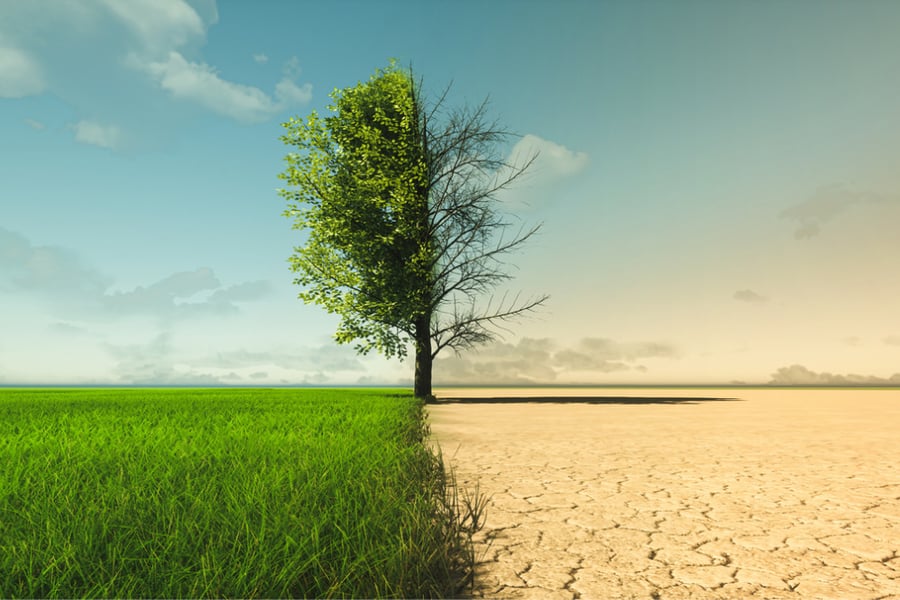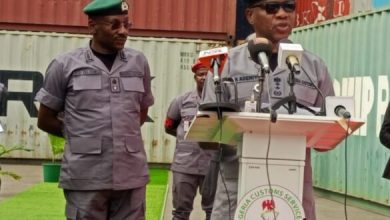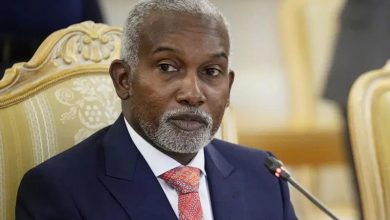
By Olayinka Oyegbile
Africa has long been the junkyard of the West. Whatever is not needed or that the West finds no longer useful or needed by it, either by its turning harmful nature, is shipped or sent to Africa. That is the unfortunate fate of a continent that is rich and poor at the same time; a continent that is held down by its leaders and its rich resources.
The film, Climate Change: Africa’s Cooked and Sinking Communities, which premiered at the recently concluded Climate Change summit in Dubai, United Arab Emirates (COP28), tries to tackle and show the challenges facing the continent; expose it to the world and other delegates at the summit.
Most Nigerians still remember what happened in the eighties at Koko in the Niger Delta area when toxic was deposited at the coast of the village. The country was scandalized because the toxic material did not originate from the country. Since the Koko toxic scandal, Africa continues to be the dumping ground for wastes that it didn’t produce.
The continent’s vast landscapes and natural beauty which should be its assets are being turned into a curse from the drilling of oil to illegal mining activities that have exposed citizens to the vagaries of modernity which has not served any positive purpose for them.
In tracing how the continent has fared with the issue of climate change, the producers of the film visited what they called three “frontline communities” on the continent that serves as the typical communities that have been affected by the activities of mining, oil exploration and other nefarious activities mostly championed by Western companies.
The three affected communities visited are Aiyetoro Community in Ondo State in the western part of Nigeria to represent the West Africa sub-region, Kambele town in Cameroun for Central Africa and Taita Taveta County, Kenya (East Africa).
From Aiyetoro to Kambele and Taita Taveta County, the stories are the same; stories of woes, tears and devastation of how climate change has torn apart the communities that were once together living happily and surviving and building their lives around agriculture or fishing.
For instance, in Aiyetoro the film shows how the impact of climate change has altered the economic, social and relational lives of the citizens and brought woes, miseries and sickness hitherto unknown to their lives and existence.
The resultant effect of the extraction of fossil fuel has left the society and its environment damaged beyond repair and the once arable and fertile lands have been abandoned while activities that have tampered with the ocean have continued to creep into the land areas thus eating their lands and shrinking the space available to them to pursue any legitimate business.
The story is not different in Kambele, Cameroun. The search for gold has deprived the people of their arable lands and rendered them vulnerable to diseases and ailments that were hitherto unknown but are results of the crude and new technology that is being deployed to prospect for the precious mineral.
One is confronted by vast arable lands that have been rendered desolate and despoiled by activities of companies in search of gold not minding the resultant effects on the citizens. The resources that were deposited to make the people live a happy life have been turned into a nightmare and a curse ala Black Gold.
Taita Taveta Country in Kenya is not different. It is the same story of gnashing of teeth and groans over the destruction of lush vegetation by activities of prospectors who have wiped out rich agricultural history of communities producing sisal, dairy, beef and rich and nourishing fruits. A county that has become a skeleton of its old self with its fortunes turned into misfortunes. A county that was once rich and self-sufficient now has to go cap in hand in search of pittance from the same people who despoil its riches and rendered it beggarly.
The residents are helpless and in search of environmentalists who would help them make their plaintive cries heard and hearkened to by the world to save them from imminent calamity and the wrath of nature.
It is these acts of climate injustice that the Corporate Accountability and Public Participation Africa (CAPPA), producers of the film, intend to expose to the world and call for redress for the victims. Taking testimonies from residents of the three communities, the docu-film has been able to show in graphic detail how the continent is coping with the climate injustice which must be redressed by the perpetrators of the ecocide.
In pursuing this course of action, the producers spoke with one of Africa’s leading environmentalists, Nnimmo Bassey, who minced no words in calling for urgent action to address the issues raised in the film. As according to him, “When we want to see an example of climate injustice in the world, Africa is a perfect example because Africa has contributed a minute amount of greenhouse gases into the atmosphere and yet she is taking all the beating and all the impacts.”
How to redress this imbalance and injustice is what the film has set out to do. It is heart-lifting that the issues have been raised through this film to poke the conscience of the world and call attention to the injustice. It is now left for the leaders of the continent, some of whom were at COP28 to walk the talk.
But are they ready? CAPPA has pricked them and pointed their eyes in the direction to go. It is left for them to hearken.
The agenda has been set for them to consider. The film is produced by CAPPA and directed by its Executive Director, Akinbode Oluwafemi with support from the Climate Emergency Collaboration Group.
Oyegbile is a Lagos based journalist, writer and communication consultant












